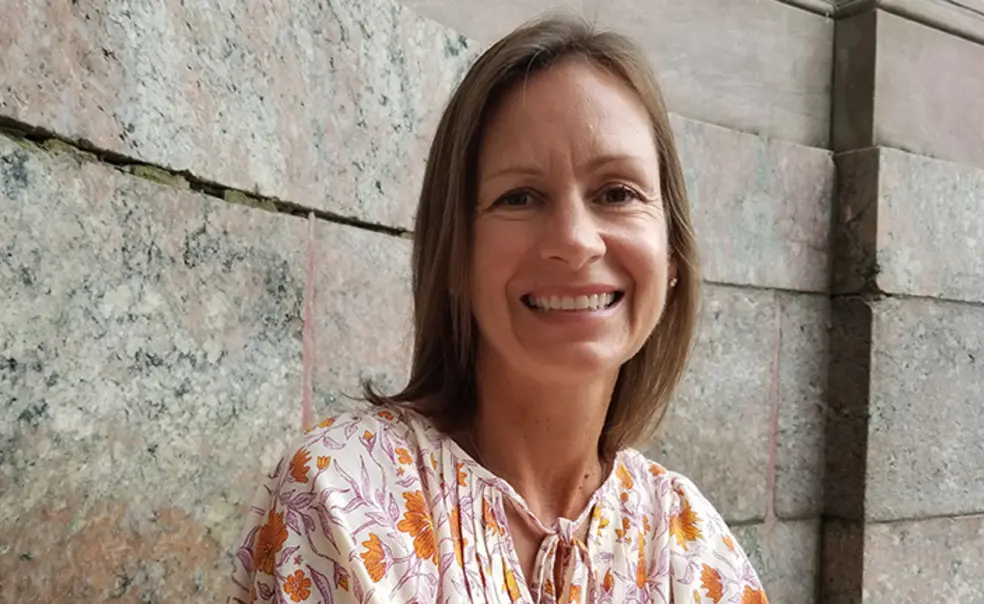Lara Bergen ’90 Is Helping NYC Schools Start Student Newspapers
Bergen says through journalism, students build community and find their voices
Lara Bergen ’90 says she didn’t fully appreciate how hard it is to be a new teacher until she landed, Columbia Teachers College master’s degree in hand, at a New York City high school on the Upper East Side. The public Title I school serves students from low-income families, and Bergen was hired to teach 12th-grade English.
But she had an idea that ultimately changed everything: a student newspaper. One of her classes created one from start to finish, and Bergen says they learned about journalism, media literacy, using sources without plagiarizing, finding the power of their own voices, and telling stories they cared about.
“The students were very, very proud of the work that they did,” Bergen says. “There were so many things by the end of this class that resonated with me as profound.”
The experience launched Bergen on a new project: Press Pass NYC, a nonprofit that helps New York City schools start their own student newspapers. A shocking number of schools don’t have newspapers, she says, and the ones that do tend to serve wealthier families with more white and Asian students. She began in the fall with 14 schools, added 10 in the spring, and has hopes of taking on far more.
Bergen concentrated in English at Princeton and initially worked in publishing, at children’s imprints. When she started a family, she began freelance writing children’s books for Scholastic, Disney, and more. She particularly enjoyed visiting schools as an author, so when her own children grew older and she wanted to work again outside the home, she thought of teaching.
She lasted two years at the Upper East Side school before burning out. But that flame from starting a student newspaper stayed bright.
Bergen says she’s not an entrepreneur, but with encouragement from her family she dove in, getting training on how to start a nonprofit from the Edwin Gould Foundation, which fosters educational equity. She’s since landed a grant from the Pinkerton Foundation and a partnership with Baruch College, which has a student journalism program. So far everyone involved with Press Pass NYC has been a volunteer, including herself.
Of the schools she worked with last year, four began online newspapers and one started a print paper. Twenty-four students from 13 schools are signed up for a new fellowship program that will begin in August with an editing bootcamp and continue with training and collaboration throughout the year.
There are so many benefits to student newspapers, she says, from checking curriculum boxes like government and civics to teaching kids how to identify misinformation online. “And you don’t even have to print them anymore,” she says.
Plus, student newspapers can help schools build community. For example, Bergen says at one of her schools last year a teacher died suddenly, and the student newspaper provided a means to share the story in a responsible way. It also gave students a forum to share their feelings about the teacher and honor him.
“When you ask student journalists what they like about student journalism,” Bergen says, “they’ll say, ‘I like learning more about my community, and I like being a better writer and a better conversationalist. I know how to talk to people.’”










No responses yet